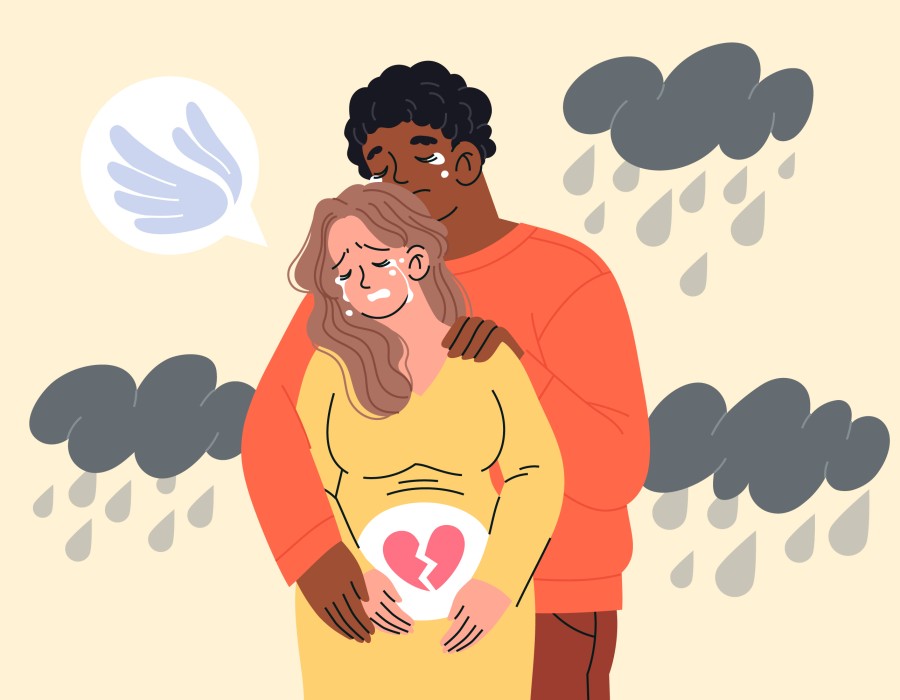Understanding the Emotional Impact of Miscarriage
Experiencing a miscarriage is a deeply painful and emotional event for any couple. It’s a loss that can affect both partners in different ways and place immense strain on their relationship. While miscarriage is a common occurrence, with around 10-20% of known pregnancies ending in early pregnancy loss, it’s often a topic shrouded in silence. Couples may feel isolated, uncertain about how to process their grief, and unsure how to support each other.
Miscarriage is not just a physical event; it brings an emotional and psychological burden that can challenge even the strongest relationships. However, understanding its impact can help couples cope and heal together.
How Miscarriage Affects Relationships
Miscarriage can create a rift in relationships, often due to differing emotional responses and communication breakdowns. Both partners grieve, but their ways of expressing grief may be different. One partner may want to talk about the loss, while the other may prefer to avoid the topic. These differences can lead to misunderstandings, distance, and even resentment.
Common Effects of Miscarriage on Relationships:
- Emotional Disconnect: Partners may feel distant from each other as they process grief in their own ways.
- Guilt and Blame: Some may feel responsible for the miscarriage, leading to feelings of guilt or inadequacy.
- Sexual Intimacy Issues: The emotional trauma may reduce sexual intimacy or create fears about future pregnancies.
- Communication Breakdown: Difficulty in expressing feelings or understanding each other’s emotions can cause tension.
The Importance of Coping Together
It is crucial for couples to navigate this challenging time together rather than in isolation. Miscarriage can feel like an insurmountable emotional burden, but with the right approach, it is possible to cope and heal. By acknowledging each other’s feelings and seeking help, couples can emerge stronger and more connected.
Ways to Cope with Miscarriage as a Couple:
- Open Communication: Talking about the loss, sharing feelings, and listening to each other without judgment can help bridge emotional gaps.
- Counseling and Therapy: Seeking professional help through counseling can provide a safe space for couples to express their grief and heal.
- Support Groups: Joining support groups for those who have experienced miscarriage can help couples feel less alone in their grief.
- Physical and Emotional Self-Care: Both partners should take time for self-care, focusing on mental health and physical recovery.
- Planning for the Future: Some couples find comfort in planning for the future, whether it’s considering another pregnancy or focusing on emotional healing before making any decisions.
If you or your partner are struggling to cope, consider scheduling a session with the best obstetrics gynecologists online consultation services for professional advice.
Steps to Take for Healing
While coping with miscarriage is deeply personal, taking the right steps can help couples navigate their grief and strengthen their relationship. Here’s how to start:
1. Seek Professional Support
It’s essential to consult with a healthcare professional who specializes in early pregnancy loss. This ensures that you receive the right treatment and emotional support. In India, you can easily connect with Early Pregnancy loss treatment doctors through online doctor consultation India services for expert guidance.
2. Focus on Healing, Both Physically and Emotionally
After a miscarriage, both partners need time to heal. While the physical recovery may vary, the emotional healing process may take longer. Be patient with each other and prioritize emotional well-being. Consider booking counseling sessions to guide both partners through this difficult time.
3. Take Time to Reconnect
Miscarriage can create emotional distance, so it’s essential to focus on reconnecting as a couple. Whether through shared activities, open conversations, or quiet moments together, rebuilding intimacy is important for emotional healing.
FAQs About Miscarriage and Relationships
Q1: How to cope with other people's pregnancies after a miscarriage?
A: Coping with others' pregnancies after a miscarriage can be emotionally challenging. It's important to allow yourself to grieve and not compare your journey to others'. Surround yourself with supportive friends and family, and consider seeking counseling to help process your emotions. Remember, it’s okay to set boundaries and take a step back if needed for your emotional well-being.
Q2: Why wait 3 months after a miscarriage?
A: The recommendation to wait 3 months after a miscarriage is often to give your body time to physically recover and for your menstrual cycle to normalize. It also provides time for emotional healing, as miscarriage can be a traumatic experience. However, some studies suggest that waiting may not be medically necessary, so it’s best to consult your doctor to make the right decision for you.
Q3: Is miscarriage due to sperm quality?
A: Yes, poor sperm quality can be a contributing factor to miscarriage. Sperm abnormalities, such as DNA fragmentation, can lead to issues with embryo development, increasing the risk of early pregnancy loss. Both partners' reproductive health plays a role in the success of a pregnancy, so it’s important to address any potential issues with a healthcare provider.
Conclusion
The emotional impact of miscarriage on relationships is profound, but with the right support and coping strategies, couples can navigate this difficult time together. Miscarriage is not a failure, and both partners deserve to heal emotionally and physically. Are you ready to take the next step toward healing after a miscarriage? Consider scheduling an online doctor consultation india today to start your journey toward emotional recovery and stronger connections.





Comments